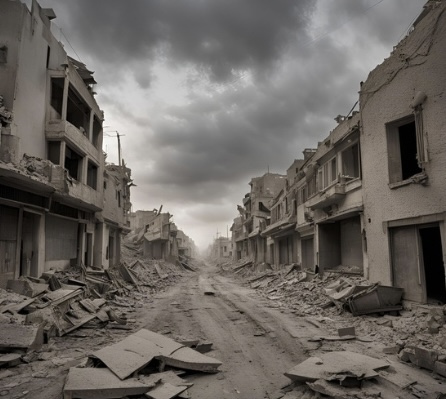Crimes against humanity are the gravest violations of human rights committed as part of a widespread attack against a civilian population. Netanyahu and Gallant are to defend themselves against those charges before the ICC, soon.
Israeli Prime Minister Benjamin Netanyahu may soon be arrested after the International Criminal Court (ICC) issued a warrant for his detention. The ICC confirmed the arrest warrants on Thursday for Netanyahu, former Defence Minister Yoav Gallant, and Hamas military chief Mohammed Deif. This comes amid ongoing investigations into alleged war crimes and crimes against humanity tied to the Israel-Hamas conflict.
Netanyahu faces charges of crimes against humanity and war crimes. These charges relate to actions taken from October 8, 2023, to May 20, 2024. The ICC claims Netanyahu is responsible for actions leading to civilian deaths and destruction in Gaza.
Crimes against humanity: Implications of Netanyahu’s arrest
Netanyahu’s imminent arrest has to do with the broader charge of “war against humanity.” The ICC’s investigation focuses on Israel’s military operations in Gaza. ICC authorities argue that the war causes mass civilian casualties. ICC accuse Netanyahu and Gallant of directing military actions that violated international law.
If arrested, Netanyahu could face serious consequences. His leadership would be challenged, and the arrest could disrupt Israel’s political stability. The global community would view it as an attempt to hold leaders accountable for the violence in Gaza. The move could spark debates about the balance between self-defense and international law.
However, Netanyahu’s arrest is not guaranteed. Israel’s government maintains that its military actions are in self-defense. Netanyahu has rejected the war crime accusations. Any attempt to arrest him could spark political and diplomatic tensions, particularly from countries supporting Israel’s actions.
Global reactions to Netanyahu’s warrant
There are mixed reactions to the warrant. Critics of Israel’s actions in Gaza welcome the ICC’s move. They see it as a necessary step toward justice for the victims of the conflict. Palestinian groups and human rights organizations also support the arrest.
In Israel, Netanyahu’s supporters argue the charges are political. They claim Israel has the right to defend itself from Hamas. However, with over 44,000 Palestinian deaths reported, many believe that accountability is necessary.
The arrest of Netanyahu could set a precedent for holding leaders responsible for war crimes. The “war against humanity” charges highlight the importance of international oversight. The conflict between Israel and Hamas is far from over, and Netanyahu’s potential arrest may influence its future course.
The ICC’s warrant marks a critical moment in the Israel-Hamas conflict. It raises questions about accountability, justice, and the consequences of military actions in Gaza. Netanyahu’s arrest remains uncertain, but the case has sparked global attention.

Leave feedback about this